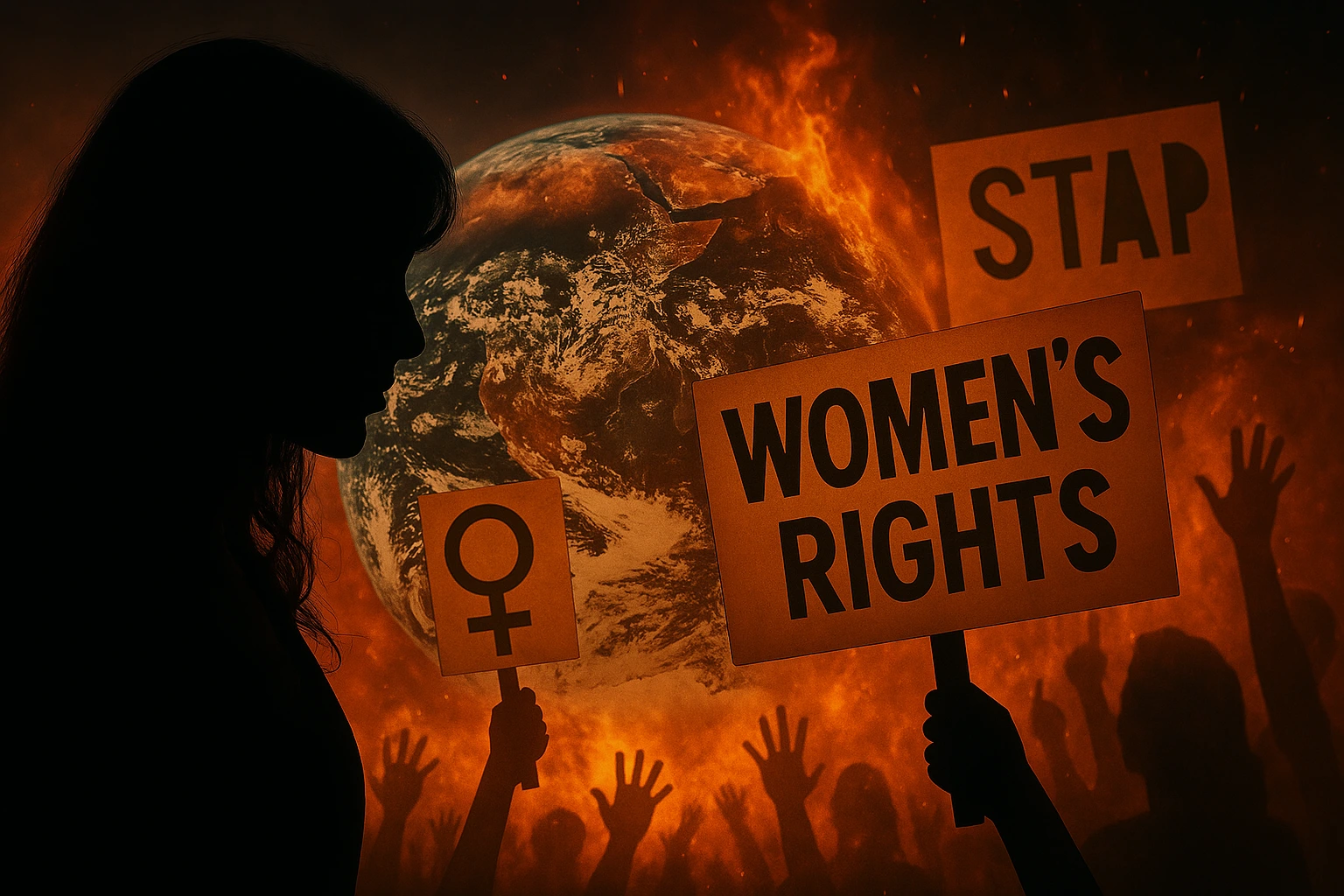Women all over the world are now enjoying outstanding enhancement in rights today, compared to the previous decades, in terms of political representation, new laws protecting women, and higher educational and economic levels. But an alarming thing has been happening over the last few years: increasingly and in concert, there has been a rejection of gender equality. Entitlements that were believed to be safe are being repealed in both highly democratic and authoritarian countries. Whether it is the reproductive liberties that are in danger in the United States or the antagonistic movements in Eastern Europe against the LGBTQ+ and gender, this backsliding provides an intricate lobster trap of political, cultural and economic factors, all navigating towards a wanton reversal of the gains women have struggled long to achieve. They are also forces we need to understand not only to prove we are up to the job of protecting what we have already earned but also to strike out on a radical, inclusive path.
A very visible manifestation of such a backlash is loss of reproductive freedom. In 2022, a ruling by the U.S. Supreme Court to overturn the Roe v. Wade succeeded in terming an end to the constitutional privilege of abortion, a privilege that was exercised for almost 50 years. This momentous judicial turnaround alarmed the supporters of women’s rights across the world, as they knew that even those legal enclosures that have been standing the test of time may succumb to ideological temptations. In Latin America, the Catholic Church and right-wing governments have persisted in resisting the liberalization of the laws of abortion, even though there have been movements to liberalize the laws, and in Argentina, the Green Wave movement. There are still restrained reproductive policies in certain segments of Africa and Asia, and many have a tendency of severely targeting poor, rural, and discriminated women with little to no access to secure healthcare provisions.
This retrocession is not happening in vacuum. It comes hand in hand with the emergence of right-wing populism and authoritarianism, where the community recalls nationalism and traditionalism as weapons of power consolidation. In countries including Hungary, Poland, Turkey, and Russia, leaders have overtly popularized policies that aim to reinstate patriarchal standards in the name of securing family values or national identity. Such governments tend to put forward their version of feminism as an alien theory that could destroy cultural tradition and the balance of society. There is no depiction of gender equality as a right to all, but rather as a Western affliction. The authoritarian states can now roll back the protection of the law and civil liberties in the name of nationalism.
To make this backlash even worse, there is a surge in digital misogyny and coordinated online abuse. Social media which were previously regarded as effective in mobilizing feminists, have turned into a field of hatred on women, particularly those in the public arena. Female journalists, politicians, and activists alleviate the problem with coordinated and targeted hate campaigns meant to hush them and intimidate them. These online assaults go beyond the issue of generic misogyny, as they usually belong to larger scale campaigns to disrupt progressive movements and make women hesitate about engaging in any kind of public activity. Such harassment is exhausting both psychologically and in terms of reputation, persuading many women to quit online spaces and leadership positions.
In addition, economic disparity keeps compounding the issue of gender inequality, especially in the post-pandemic world. Women were also disproportionately affected by COVID-19, particularly those in caring jobs, those working in the informal sector, or those working in irregular jobs. During the lockdown, there was an increase in violence and unpaid work within the home, but policies did not always acknowledge the gendered relationship with these crises. When some governments tried to put temporary solutions in place to help people, few governments tried to sort out the structural snags that were leaving women out of the labor market. With the world economy shifting towards recovery, there are dangers of the inequalities worsening by gender-blind policies instead of being broken.
The education sector has turned out to be a disputed zone as well. In Afghanistan, the Taliban who came back to power in 2021 have created a situation where girls and women are being largely excluded from schools and universities. At the same time, political agents in sections of the U.S. and the UK have been attacking gender studies or diversity education as a form of ideological brainwashing. Chilling feminist ideas and gender-friendly curriculum is a tactical approach to govern discourse based on identity, history, and power. By preventing the youth from learning about gender justice, they become ill-prepared to overcome inequality at their workplaces and communities.
The situation is further disguised by the issue of religious fundamentalism. In Christian, Muslim, Hindu, and Jewish society, the common denominator in the denial of fundamentalist movements to deny patriarchal inherence has been on the same agenda. These dogmas tend to enforce rigorous gender roles, restrict freedom of action on behalf of the women, and oppose juridical changes to such traditional power. Most importantly, these movements often work together internationally, creating transnational networks which exchange strategies and funds. The international dimension of this anti-gender agenda is more difficult to face, and it needs similarly well-coordinated and international opposition by civil society and progressive governments.
Even in this intimidating backdrop, opposition is increasing. The grassroots feminist movements are responding creatively, collectively, and resiliently. The local fight initiated in Iran in 2022 by the death of Mahsa Amini under the slogan of Woman, Life, Freedom, thus energized transnational mobilization and engagement after the 2022 protests. Feminists are still making strides towards bodily autonomy in Latin America, while it seems to have been lost in other countries. There have been recent successes in Mexico and Colombia, offering signs of hope. Despite the risks involved, digital organizing is an essential instrument of mobilization, education, and giving voice to the marginalized population.
The world today needs to understand that the rights of women cannot be considered secondary or compromised, as it is through them that we realize democratic governance, sustainability in development, as well as peace in the world. Governments need to implement gender responsive policies to deal with the causes of inequality beyond access to schools and medical care to equal representation in decision-making areas. Countries that go against the rights of women should be brought to book by international institutions, and they should also be equipped to help local activists. Notably, men and boys should be included as allies in this battle as they should realize that everyone in society is a beneficiary of gender justice.
In part, education needs to be retrieved as a potent mechanism of change. With targeted investments in gender-focused education in early childhood and higher education, it might be possible to both break the insidious norms, instill empathy, and give young people the power of imagining a more equal world. At the same time, media and cultural industries should be responsible about the messages they are spreading — messages which are usually supporting stereotypes or trivializing feminist issues.
The anti-feminism movement is happening, and it is colossally and alarmingly worrying, yet it is not impossible to overcome. Then again, nothing speaks louder than the fact that feminism has powerful positive effects, proven by the fact that the people who profit from the status quo feel endangered enough to fight back. What lies ahead needs bravery, cooperation, and a firm standpoint on what is right or wrong. We can pursue a courageous, united, and generation-long effort to achieve gender equality by identifying the forces of reaction as well as coming together across all borders.







